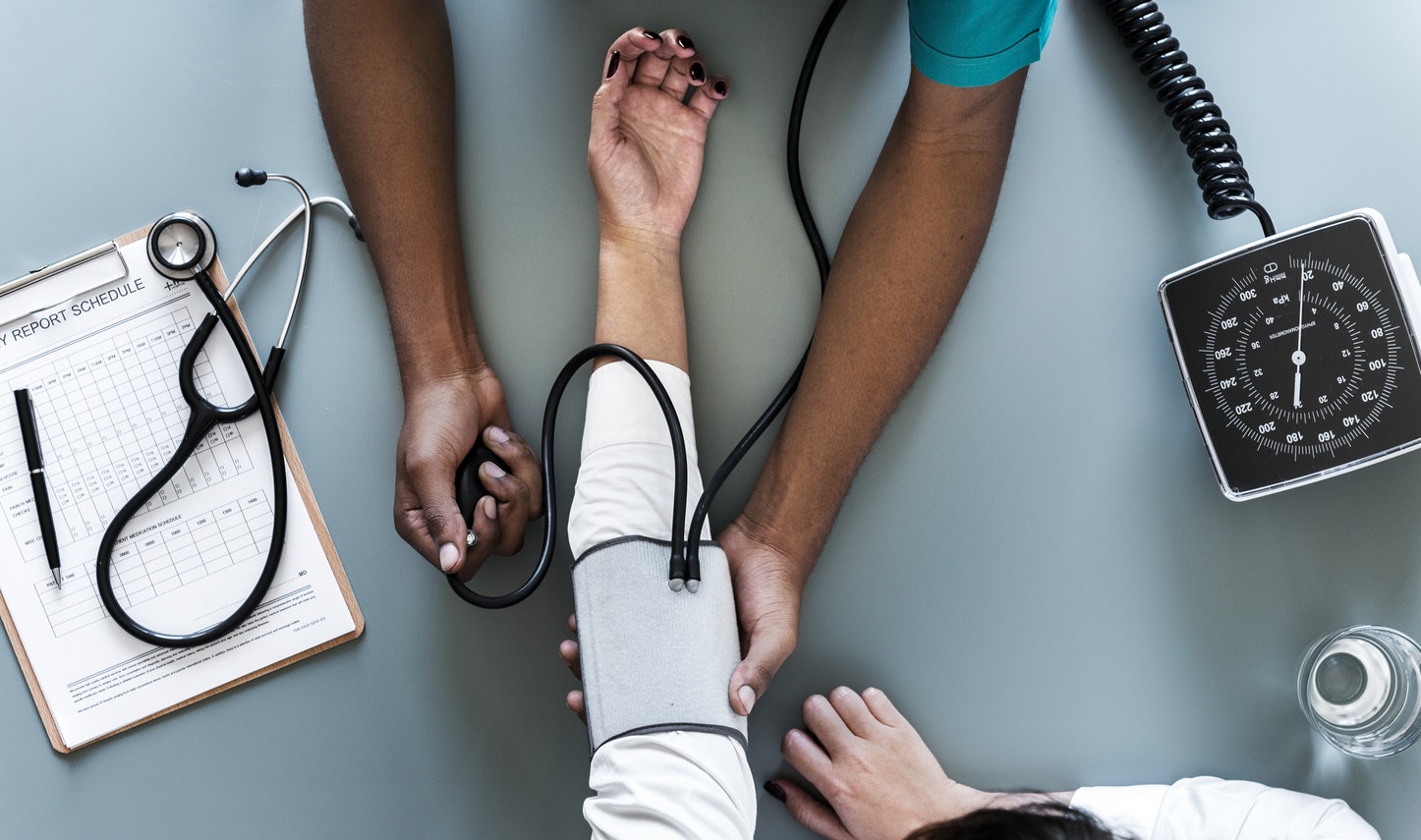
Body + Mind is reader-supported. We may earn an affiliate commission when you buy through some of the links on our site.
High blood pressure in pregnancy occurs more often than you think, but it’s not necessarily dangerous. You may have had high blood pressure, also known as hypertension, before you conceived, or you may develop gestational high blood pressure as your pregnancy progresses. You swore you were swelling up, but you don’t need this kind of pressure!
What is blood pressure, and what’s going on when you get hypertension during pregnancy? Blood pressure means the force with which blood pushes against your arterial walls as your heart beats. A certain degree of pressure helps the blood circulate in your body — yay! — but too much pressure causes problems — yikes.
Health care providers measure blood pressure by millimeters of mercury (mmHg), and this measurement contains two numbers. On top, the systolic number refers to the pressure of your heart contracting to pump blood, and on the bottom, the diastolic number refers to when your heart relaxes and blood flows into its chambers.
When people talk about your blood pressure reading, they may say, “120 over 80,” the top being systolic and the bottom being diastolic. High blood pressure in pregnancy means you have a 140/90 reading or higher, and severe hypertension is 160/110 and up.
Gestational hypertension usually occurs after 20 weeks of pregnancy, but it’s temporary and often clears up after pregnancy. Chronic hypertension occurs before 20 weeks of pregnancy or was there before conception. Many expecting moms who have hypertension can continue with a normal pregnancy, but the likelihood of complications increases.
What complications might arise when you have high blood pressure in pregnancy? Many expecting mothers with hypertension deliver healthy tiny humans, but the condition can increase the risk for stroke, heart disease and kidney disease. Additional complications include the following.
Maybe you didn’t plan your pregnancy, and you certainly never planned to get high blood pressure. What you can do now is manage controllable risk factors and choose healthier daily habits to rein in your hypertension. Though men are likelier to get high blood pressure before age 64 than women, pregnancy or the use of birth control can sometimes heighten the chances of getting hypertension. Several risk factors also affect the likelihood of having high blood pressure in pregnancy:
You have a lot to deal with when you’re pregnant, and some parts of your body complain more than others. You can deliver a healthy baby while having high blood pressure, but your risk of complications increases. You need treatment to avoid the possible dangers.
Your doctor can provide you with a safe hypertension medication that will control your blood pressure with the appropriate dosage. You should avoid angiotensin-converting enzyme inhibitors, renin inhibitors and angiotensin II receptor blockers while pregnant. Coordinate with your OBGYN, GP and cardiologist to construct a care plan that works for you.
Your doctor will conduct urine and blood tests frequently, and check your blood pressure and weight. They will also monitor your baby’s health with regular ultrasounds. Once you have delivered your baby, you may breastfeed your child, but your doctor may want to change your medications.
To reduce the risk of complications, take your medication and keep all appointments. Follow your doctor’s recommendations for a healthy diet and exercise. Dealing with high blood pressure in pregnancy is akin to the extra attention you’d normally pay to following a healthier routine, but with a little extra medication and doctor visits.